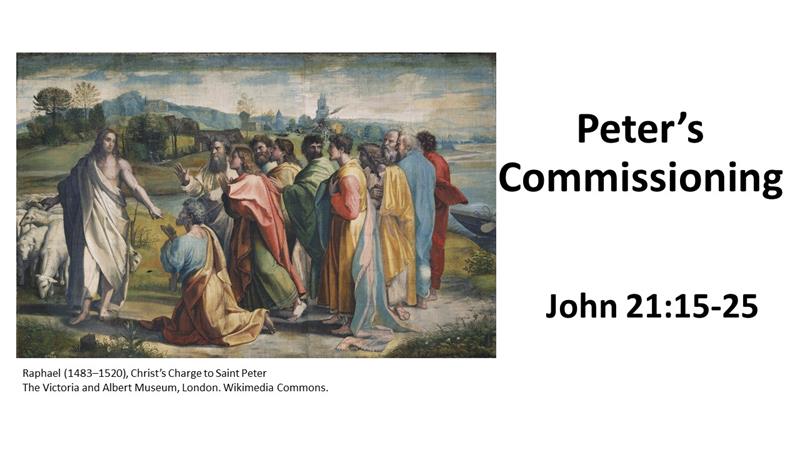
Jeff Garrison
Skidaway Island Presbyterian Church
John 21:15-25
May 24, 2020
We’re finishing up our look at Jesus’ post-resurrection encounters this week with the ending to the passage we began studying last week. As I indicated on several occasions throughout this series, the post-resurrection encounters generally had a mission component. We’ll this today. The disciples were sent out to do something-Mary at the tomb was sent to tell the Apostles, and the disciples what we know as the Sea of Galilee, Jesus gives Peter a mission.
Again, I’m using a classical painting to illustrate our text. Today, the painting is by Raphael, an artist who painted just before and at the beginning of the Reformation. To put this in perspective, this tapestry was finished the year before Martin Luther posted the 95 Thesis and is titled, “Christ Charge to St. Peter.”[1] I like the painting because it shows the sea (and glimpses the bow of a boat) along with a flock of sheep. Peter, a fisherman, is being commissioned to tend to Jesus’ sheep. The other ten disciples (remember Judas is no longer with them) look on. However in John’s gospel, we’re told that there were only seven disciples present. Hear God’s word for today. Read John 21:15-25.
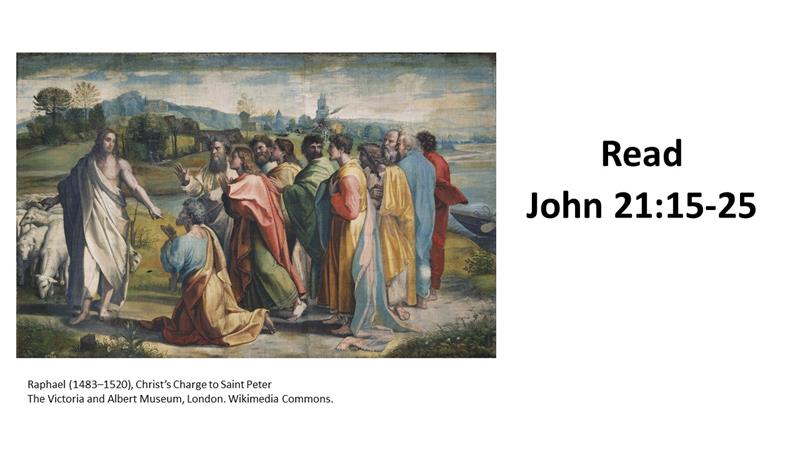
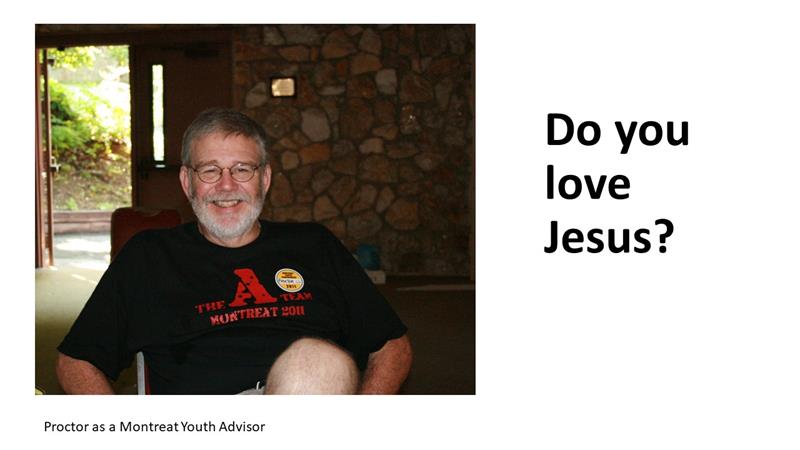 Some of you may know the Reverend Proctor Chambless. He’s a retired minister member of the Savannah Presbytery, and has served a number of congregations within our presbytery and across the South. When I came to this presbytery, Proctor was serving an interim position in another presbytery upstate. He wasn’t here. During the first person examined for ordination as a Minister of the Word and Sacrament at Presbytery, someone stood up and said that since Proctor wasn’t present, he was going to ask Proctor’s question. The question: “Do you love Jesus?” The presbytery, as a body, snickered. I realized I wasn’t in on the joke. I asked someone about this and was told that Proctor always asked that question. When Proctor returned, I figured out who he was before I met him. We had another candidate to examine and Proctor stood and asked this question. It’s kind of a fun thing. The rest of us are thinking probing questions to prod the examinee on the fine points of Reformed Theology, as Proctor, with his deep southern drawl, asks the essential question. “Do you love Jesus?” That’s the question Jesus asks Peter three times. And it’s a question we’re all to ask ourselves. Furthermore, as we’re going to see when we delve into this text, there is one way of knowing that we love Jesus. Do we care for others?
Some of you may know the Reverend Proctor Chambless. He’s a retired minister member of the Savannah Presbytery, and has served a number of congregations within our presbytery and across the South. When I came to this presbytery, Proctor was serving an interim position in another presbytery upstate. He wasn’t here. During the first person examined for ordination as a Minister of the Word and Sacrament at Presbytery, someone stood up and said that since Proctor wasn’t present, he was going to ask Proctor’s question. The question: “Do you love Jesus?” The presbytery, as a body, snickered. I realized I wasn’t in on the joke. I asked someone about this and was told that Proctor always asked that question. When Proctor returned, I figured out who he was before I met him. We had another candidate to examine and Proctor stood and asked this question. It’s kind of a fun thing. The rest of us are thinking probing questions to prod the examinee on the fine points of Reformed Theology, as Proctor, with his deep southern drawl, asks the essential question. “Do you love Jesus?” That’s the question Jesus asks Peter three times. And it’s a question we’re all to ask ourselves. Furthermore, as we’re going to see when we delve into this text, there is one way of knowing that we love Jesus. Do we care for others?
Let’s look at the text. Throughout this chapter, Peter is in the forefront. He’s the one who decides to go fishing. The other six disciples tag along. He’s the one, when he learns it’s Jesus on the shore, jumps into the water and swims to Jesus, letting the six others fight with a full net of fish. Now that breakfast is over, Jesus questions Peter in a way that almost seems as if he’s being commissioned or ordained for his task once Jesus has ascended to heaven. We’re not told this, but I image Jesus drawing Peter away from the rest of the disciples and putting his hand on this shoulder, saying “Simon, son of John.”
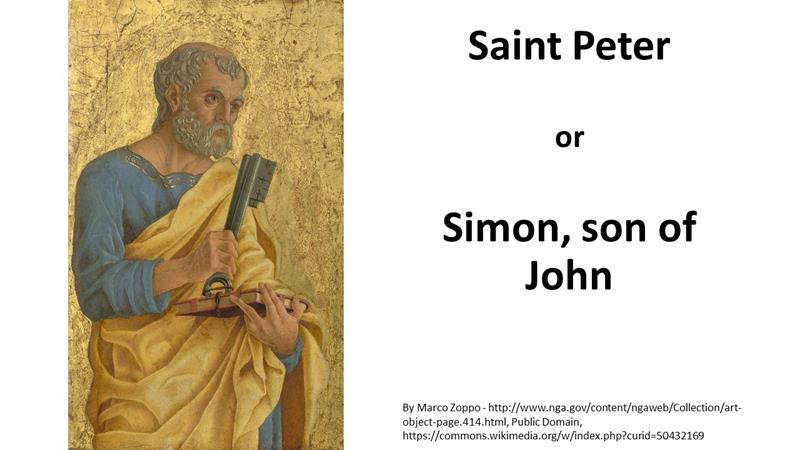 Jesus uses his full legal name. “Simon, son of John.” Did any of you have parents, or maybe a teacher, who when you were in trouble, would use your full name? “Charles Jeffrey!” I would hear that and immediately knew I had done something wrong. Was Peter in trouble? I don’t think so. But Jesus emphasizes the importance of his questioning. When someone uses your full name, it grabs your attention. Jesus asks Peter if he loves him more than these. We can assume Jesus is pointing over toward the other disciples. We’re told that Peter, in two of the gospels, brags at the Last Supper about how much more he loves Jesus than the others, so much so that he’ll never abandon Jesus.[2] Of course, pride comes before the fall, and later that night Peter denies Jesus three times.
Jesus uses his full legal name. “Simon, son of John.” Did any of you have parents, or maybe a teacher, who when you were in trouble, would use your full name? “Charles Jeffrey!” I would hear that and immediately knew I had done something wrong. Was Peter in trouble? I don’t think so. But Jesus emphasizes the importance of his questioning. When someone uses your full name, it grabs your attention. Jesus asks Peter if he loves him more than these. We can assume Jesus is pointing over toward the other disciples. We’re told that Peter, in two of the gospels, brags at the Last Supper about how much more he loves Jesus than the others, so much so that he’ll never abandon Jesus.[2] Of course, pride comes before the fall, and later that night Peter denies Jesus three times.
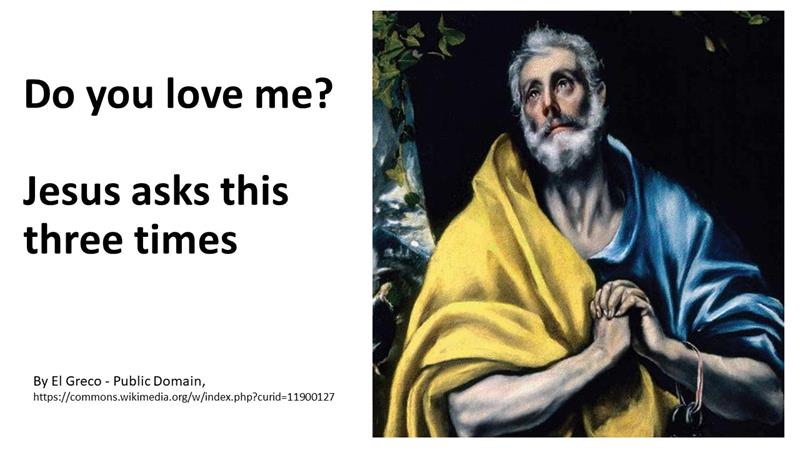 Now, after everything that has happened—the betrayal, the crucifixion, the resurrection—Jesus asks if Peter really does love him and, of course, Peter responds positively. “Yes, Lord, you know that I love you.” Jesus then tells Peter to feed his lambs. This questioning goes on for three times, with just slight variations.[3] After the second question and answer, Jesus says to tend his sheep and after the third, feed my sheep.[4] Jesus gives Peter the mission to care for those whom Jesus brings into his church. But Jesus repeatedly asking Peter if he loves him gets on Peter’s nerves. It bothers him, he’s hurt, yet Peter continues to answer, “Yes, Lord, I love you.” Maybe Jesus asks this three times to undo the triple betrayal Peter committed after Jesus’ arrest. Jesus wants to make sure that Peter understands he’s forgiven and that he’s ready to take over his responsibility of the church.
Now, after everything that has happened—the betrayal, the crucifixion, the resurrection—Jesus asks if Peter really does love him and, of course, Peter responds positively. “Yes, Lord, you know that I love you.” Jesus then tells Peter to feed his lambs. This questioning goes on for three times, with just slight variations.[3] After the second question and answer, Jesus says to tend his sheep and after the third, feed my sheep.[4] Jesus gives Peter the mission to care for those whom Jesus brings into his church. But Jesus repeatedly asking Peter if he loves him gets on Peter’s nerves. It bothers him, he’s hurt, yet Peter continues to answer, “Yes, Lord, I love you.” Maybe Jesus asks this three times to undo the triple betrayal Peter committed after Jesus’ arrest. Jesus wants to make sure that Peter understands he’s forgiven and that he’s ready to take over his responsibility of the church.
Peter is then informed of what kind of death he will endure. Peter, this wild and free man who so full of passion, will end up a prisoner hauled off to be executed. Peter earlier had boasted that he was willing to die for Jesus. It’s now seen as prophetic. Jesus ends this discourse with the words he first used to call Peter while there at the seashore, “Follow me.”[5]
 We’re not given a sense of just how this prediction of Peter’s death was received, but Peter must have pondered it, for he asks about another of the disciples. Jesus tells Peter a great truth. “Don’t worry about him and his death.” It’s almost as if Jesus is saying, “You have enough troubles. Don’t worry about what God seems to give someone else to worry over.” In other words, accept God’s gift as grace and be thankful.
We’re not given a sense of just how this prediction of Peter’s death was received, but Peter must have pondered it, for he asks about another of the disciples. Jesus tells Peter a great truth. “Don’t worry about him and his death.” It’s almost as if Jesus is saying, “You have enough troubles. Don’t worry about what God seems to give someone else to worry over.” In other words, accept God’s gift as grace and be thankful.
 Here we are, fifty or so generations Peter.[6] This is a time of turmoil and fear, of pandemic and economic uncertainty. We’re all a little on the edge. What can we learn from this text? Well, we’ll all have our own burdens. Hopefully, we won’t have Peter’s burden of a crucifixion. Also, we learn that some seemed more blessed in one area of life than another. Some get the virus and don’t even know it. Others get it and struggle to breathe and their bodies break down. Some die. Why? This text suggests that’s a futile question. Instead, we’re shown what we, like Peter, should be doing. We’re to follow Jesus, whose path led at one point to the nourishing waters of the Jordan and at another point to that hill name Golgotha, the place of death. And along the way, we do what we can to care for those whom Jesus calls. We’re not told here to save the world. In fact, Peter isn’t even told to save anyone. Jesus is the Savior. Peter, who is being retrained from having been a fisherman to being a sheepherder, is to care for those Jesus sends his way. And that’s the role of the church, to care for those whom Jesus sends our way.
Here we are, fifty or so generations Peter.[6] This is a time of turmoil and fear, of pandemic and economic uncertainty. We’re all a little on the edge. What can we learn from this text? Well, we’ll all have our own burdens. Hopefully, we won’t have Peter’s burden of a crucifixion. Also, we learn that some seemed more blessed in one area of life than another. Some get the virus and don’t even know it. Others get it and struggle to breathe and their bodies break down. Some die. Why? This text suggests that’s a futile question. Instead, we’re shown what we, like Peter, should be doing. We’re to follow Jesus, whose path led at one point to the nourishing waters of the Jordan and at another point to that hill name Golgotha, the place of death. And along the way, we do what we can to care for those whom Jesus calls. We’re not told here to save the world. In fact, Peter isn’t even told to save anyone. Jesus is the Savior. Peter, who is being retrained from having been a fisherman to being a sheepherder, is to care for those Jesus sends his way. And that’s the role of the church, to care for those whom Jesus sends our way.
 During these trying times, when we are hiding out in our homes, we might wonder how we can help anyone. There are ways. The Session, at the request of the Mission and Benevolence Committee, has called for a special offering to help care for the homeless in our community. Do what you can to help. The homeless ministries of Savannah are struggling to meet the needs of those who live under the bridges and on the streets.
During these trying times, when we are hiding out in our homes, we might wonder how we can help anyone. There are ways. The Session, at the request of the Mission and Benevolence Committee, has called for a special offering to help care for the homeless in our community. Do what you can to help. The homeless ministries of Savannah are struggling to meet the needs of those who live under the bridges and on the streets.
Or maybe your gift is crafts and sewing. With plenty of time, you can help make masks, as my daughter and a neighbor of David and Linda Denhard has done. See my selfie on the slide? That’s an example of my daughter’s handiwork. Masks can be shared with nursing homes and for our own use when we are in public. When we start gathering back together for worship, masks will be encouraged. Wearing a mask not only protects us. If we’re asymptomatic, masks will protect others. Wearing a mask can be a gentle way of caring for Jesus’ sheep.

And if you’re not crafty, why not make some phone calls and write some letters. There are people who need to feel connected, especially to those who live alone. As Paul says in his first letter to the Thessalonians, “encourage one another, build up each other.”[7]
This week, I want to encourage everyone to reach out to someone and offer hope. For we who believe, are not to despair. We are to have hope and share that hope that we have in a loving Savior. When we do this, we are living up to the calling that was first given to Peter: “feed my lambs, care for my sheep.” Amen.
©2020
Sources Consulted:
Brown, Raymond E., The Gospel According to John XII-XXI: The Anchor Bible ( Garden City, NY: Doubleday, 1970
Bruner, Frederick Dale, The Gospel of John: A Commentary (Grand Rapids: Eerdmans, 2012).
Michaels, J. Ramsey, : John: Good News Commentary (Harper & Row, 1983.
Sloyan, Gerald, John: Interpretation, A Biblical Commentary for Teaching and Preaching (Atlanta: John Knox Press, 1988).
[1] The tapestry is also known as “Christ’s Handing the Keys to St. Peter.” Raphael combines the story of Peter receiving the keys (Matthew 16:18-19) and Peter after the breakfast on the beach (John 21:15-17) to create this work. For more information see https://www.artbible.info/art/large/683.html
[2] Matthew 26:33, Mark 14:29.
[3] Much has been made about Jesus use of the word love. The first two times, Jesus uses the Greek word “Agape.” Peter responds with the Greek word “Phila” (from which we get Philadelphia which means “city of brotherly love.”) The third time, Jesus uses “Phila” instead of “Agape.” These two terms are closely related and in English both are translated as “Love.”
[4] Lambs could be those new to the faith (those being initiated) while sheep could refer to those more mature in their faith.
[5] See Matthew 4:19 and Mark 1:17. In John’s retelling, Simon comes to Jesus through his brother Andrew and at their first meeting, Jesus changes Simon’s name to Peter. See John 1:40-42.
[6] A Biblical generation is generally considered 40 years.
[7] 1 Thessalonians 5:11

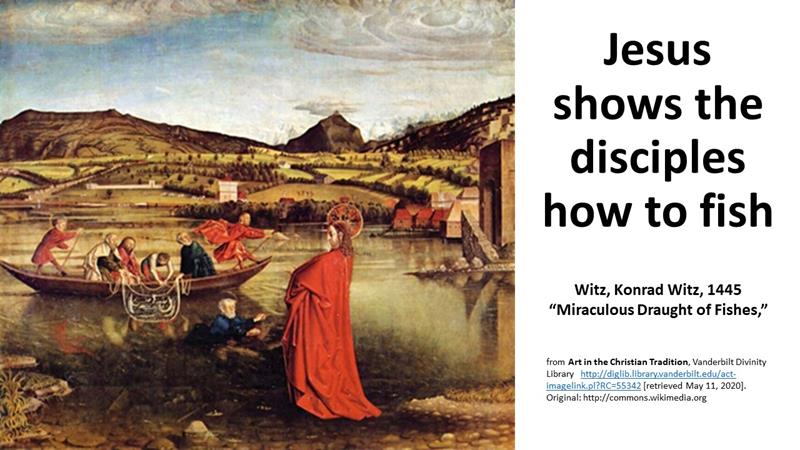 Jeff Garrison
Jeff Garrison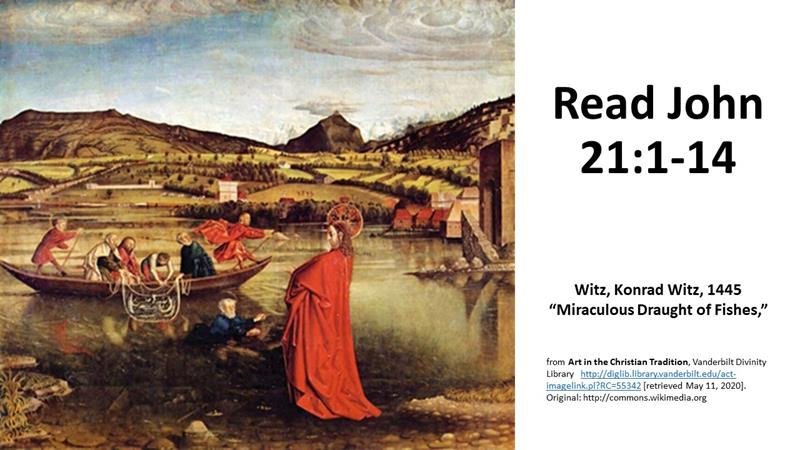
 The best fish are fresh from the water. Even greasy bluefish make a great breakfast when grilled over a charcoal fire on the beach. I was probably 10 or 11 when I first had such a treat. We were fishing on Masonboro Island. It was in the fall, when the bluefish run. We got up when it was still pitch dark and chilly. My dad started a charcoal fire, which helped us stay warm. But instead of sitting around the fire, we soon had lines in the dark water, casting out into surf. In darkness, we fished with bait. On the end of the line, we had a rig with a weight and two hooks, each containing a strip of mullet. When the fish hit, we’d yank the rod to set the hook, then reel hard. Soon, if lucky, a flapping fish could be made out from the distant light of the lantern. We’d have to bring the fish into the light in order to safely get out the hook.
The best fish are fresh from the water. Even greasy bluefish make a great breakfast when grilled over a charcoal fire on the beach. I was probably 10 or 11 when I first had such a treat. We were fishing on Masonboro Island. It was in the fall, when the bluefish run. We got up when it was still pitch dark and chilly. My dad started a charcoal fire, which helped us stay warm. But instead of sitting around the fire, we soon had lines in the dark water, casting out into surf. In darkness, we fished with bait. On the end of the line, we had a rig with a weight and two hooks, each containing a strip of mullet. When the fish hit, we’d yank the rod to set the hook, then reel hard. Soon, if lucky, a flapping fish could be made out from the distant light of the lantern. We’d have to bring the fish into the light in order to safely get out the hook. Leaving our fish on sand, we rebait our hooks and again cast out into the surf. Slowly, the sky changes. The stars began to extinguish themselves. A ribbon of light appears on the horizon, and it gradually growed. We began to be able to make out the beach and could see where the waves were breaking. Soon afterwards, the sun would slowly rise, its rays seemingly racing across the water toward me, as if they whose rays were destined just for me.
Leaving our fish on sand, we rebait our hooks and again cast out into the surf. Slowly, the sky changes. The stars began to extinguish themselves. A ribbon of light appears on the horizon, and it gradually growed. We began to be able to make out the beach and could see where the waves were breaking. Soon afterwards, the sun would slowly rise, its rays seemingly racing across the water toward me, as if they whose rays were destined just for me. When there was a lull in the action, we’d stop and clean a few fish, washing them off in the surf, and then lay them on a grill over the coals. In a few minutes, we’d be “eatin’ good.” Afterwards, we’d change the rigging on our rods to plugs and spoons and head back to the water’s edge. Good memories of good times.
When there was a lull in the action, we’d stop and clean a few fish, washing them off in the surf, and then lay them on a grill over the coals. In a few minutes, we’d be “eatin’ good.” Afterwards, we’d change the rigging on our rods to plugs and spoons and head back to the water’s edge. Good memories of good times.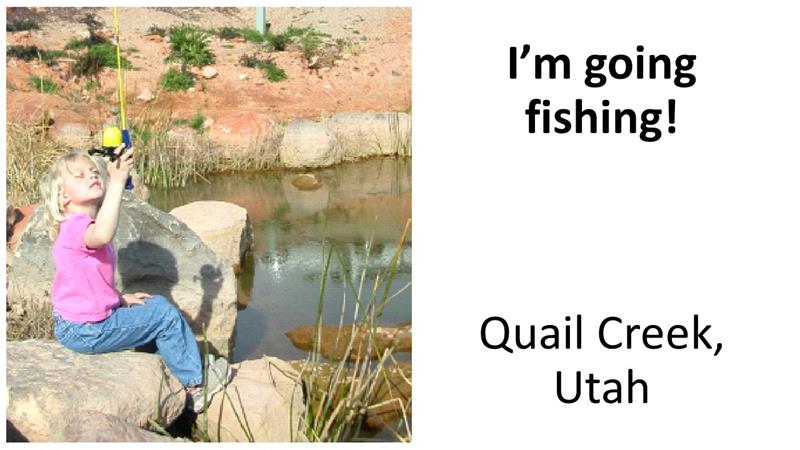 Perhaps it was because I grew up in a home where fishing ranked just below church attendance in priority that Peter’s statement, “I’m going fishing” seems normal. And to the six disciples with him, it sounds like a plan. They head to the water and fished the night. They had terrible luck. That happens. Some mornings there are no bluefish for breakfast.
Perhaps it was because I grew up in a home where fishing ranked just below church attendance in priority that Peter’s statement, “I’m going fishing” seems normal. And to the six disciples with him, it sounds like a plan. They head to the water and fished the night. They had terrible luck. That happens. Some mornings there are no bluefish for breakfast.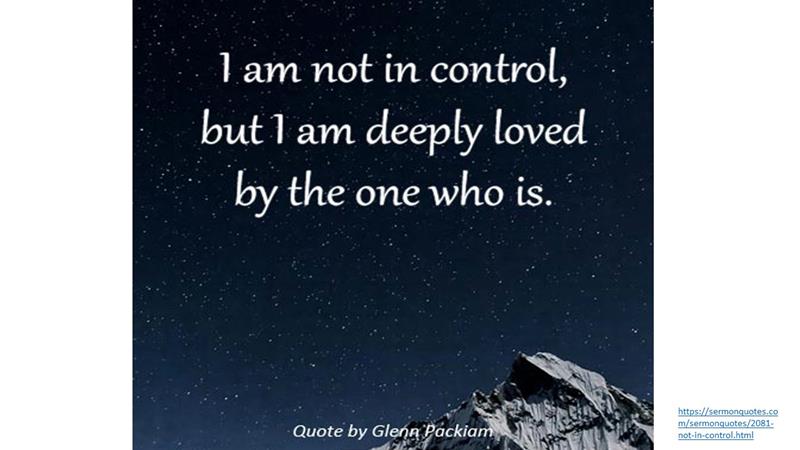 As I’ve emphasized in these sermons on Jesus’ resurrection, the disciples learn a true lesson. They are not in control. Jesus is in control. We often have this image of going to Jesus, but in truth, Jesus first comes to us. In today’s story, Jesus knows where many of his disciples are. They’re by the lakeshore, fishing, because that’s what they know how to do. So, like when he first called them, he returns to call them again. Next week, we’ll look at how Jesus sends out Peter with a mission, but before we go there, I want us to spend some time in this story.
As I’ve emphasized in these sermons on Jesus’ resurrection, the disciples learn a true lesson. They are not in control. Jesus is in control. We often have this image of going to Jesus, but in truth, Jesus first comes to us. In today’s story, Jesus knows where many of his disciples are. They’re by the lakeshore, fishing, because that’s what they know how to do. So, like when he first called them, he returns to call them again. Next week, we’ll look at how Jesus sends out Peter with a mission, but before we go there, I want us to spend some time in this story.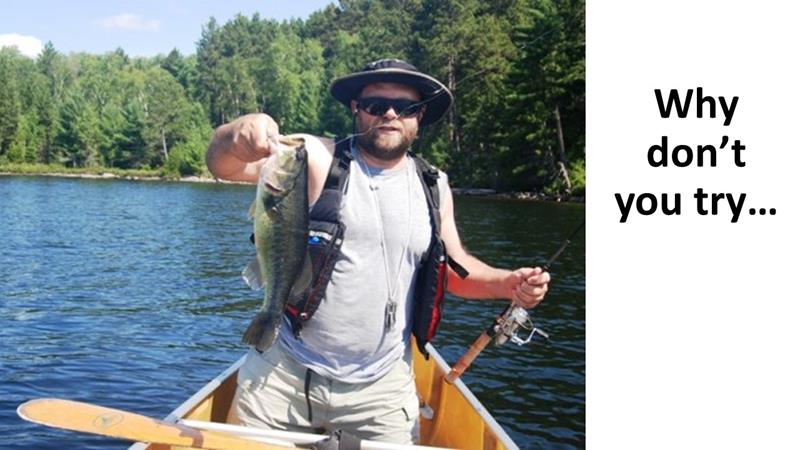 On this night, the fishing hadn’t been good. Jesus then does something else that goes against fishermen etiquette. “Why don’t you fish from the other side?” That’s like suggesting a different lure or fly. “Take off that spinner and put on a jitterbug; or get rid of that wooly bugger and put on a popping bug.” But Jesus’ advice pays off as they catch so many fish the net is about to break. Only then does the Beloved Disciple realizes it’s Jesus. Before he can act, Peter throws on some clothes, jumps in and swims toward shore.
On this night, the fishing hadn’t been good. Jesus then does something else that goes against fishermen etiquette. “Why don’t you fish from the other side?” That’s like suggesting a different lure or fly. “Take off that spinner and put on a jitterbug; or get rid of that wooly bugger and put on a popping bug.” But Jesus’ advice pays off as they catch so many fish the net is about to break. Only then does the Beloved Disciple realizes it’s Jesus. Before he can act, Peter throws on some clothes, jumps in and swims toward shore.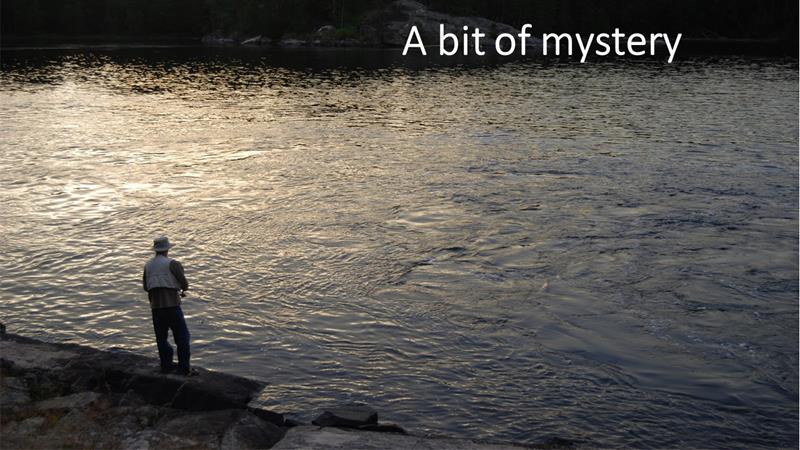 Like the other post-resurrection appearances, there’s also bit of mystery. Why do we even have verse twelve? After Jesus calls them in for breakfast, we’re told that no one dared to ask, “Who are you?” They knew it was Jesus, but the text leaves us wondering what’s going on. Furthermore, they don’t recognize Jesus right off. It’s only when they follow his suggestion that they encounter him. There’s probably a lesson in that, too. When we listen to Jesus and do what he says, our relationship grows.
Like the other post-resurrection appearances, there’s also bit of mystery. Why do we even have verse twelve? After Jesus calls them in for breakfast, we’re told that no one dared to ask, “Who are you?” They knew it was Jesus, but the text leaves us wondering what’s going on. Furthermore, they don’t recognize Jesus right off. It’s only when they follow his suggestion that they encounter him. There’s probably a lesson in that, too. When we listen to Jesus and do what he says, our relationship grows.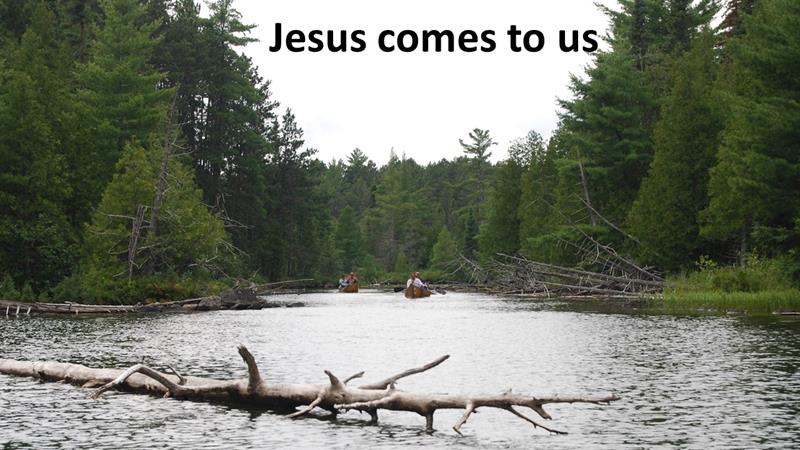 There are three things that happen to the disciples in this passage that we should take to heart. First, Jesus comes to us. Jesus shows up at the most unexpected places. In these stories, he doesn’t show up at church or the synagogue or the temple. Instead, it’s at work, after or before visiting hours. Think about the post-resurrection appearances. Except for meeting the disciples on the road to Emmaus, Jesus always shows up on the shoulders of the day (at daybreak and in the evening). In this case, Jesus arrives as the disciples are finishing up their night shift at a job that wasn’t going to be paying much this day. As followers of Jesus, we must be ready for whenever our Savior decides to pop by. Jesus is not just Lord over Sunday or over religion, he is Lord of all, and can meet us wherever we find ourselves. This is good news in a time that many of us find ourselves prisoners in our own homes! Yes, Jesus can show up even there, you’ll just have to let him in.
There are three things that happen to the disciples in this passage that we should take to heart. First, Jesus comes to us. Jesus shows up at the most unexpected places. In these stories, he doesn’t show up at church or the synagogue or the temple. Instead, it’s at work, after or before visiting hours. Think about the post-resurrection appearances. Except for meeting the disciples on the road to Emmaus, Jesus always shows up on the shoulders of the day (at daybreak and in the evening). In this case, Jesus arrives as the disciples are finishing up their night shift at a job that wasn’t going to be paying much this day. As followers of Jesus, we must be ready for whenever our Savior decides to pop by. Jesus is not just Lord over Sunday or over religion, he is Lord of all, and can meet us wherever we find ourselves. This is good news in a time that many of us find ourselves prisoners in our own homes! Yes, Jesus can show up even there, you’ll just have to let him in.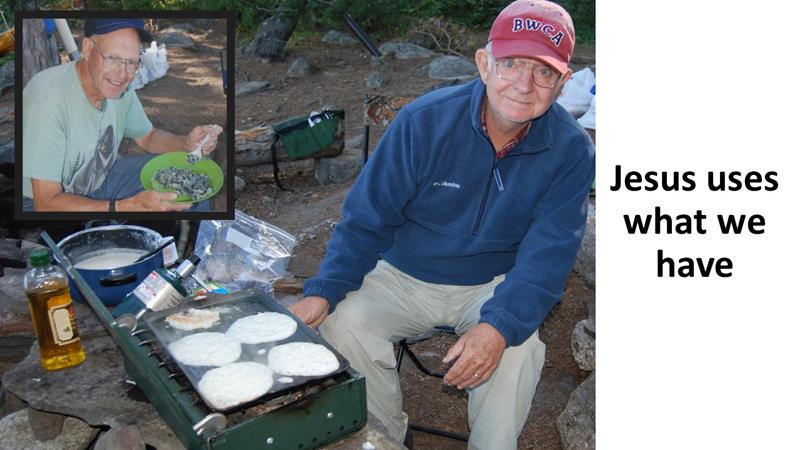 Let me tell you a story to illustrate this. Many of the photos I’ve using today came from a 2008 trip into the Quetico Wilderness in Western Ontario. The guy at the camp stove you see now is Doc Spindler. One morning, he was talking about having pancakes and so proud of himself for prepacking everything he needed. To be helpful, Jim Bruce (who visited us here at SIPC in February and seen in the picture with the full plate) and I went out early that morning, braving the bears as we picked a quart of so of blueberries. We brought them back and Doc was so happy to have blueberries to mix into pancakes. You use what you’re given. Doc knows this. Although a great guy, however, Doc isn’t Jesus. Instead of the baggie with pancake mix, he used a package of meal for frying fish and the blueberry pancakes ended up coming out like goulash. But with a little syrup and butter and an empty stomach, it was still good.
Let me tell you a story to illustrate this. Many of the photos I’ve using today came from a 2008 trip into the Quetico Wilderness in Western Ontario. The guy at the camp stove you see now is Doc Spindler. One morning, he was talking about having pancakes and so proud of himself for prepacking everything he needed. To be helpful, Jim Bruce (who visited us here at SIPC in February and seen in the picture with the full plate) and I went out early that morning, braving the bears as we picked a quart of so of blueberries. We brought them back and Doc was so happy to have blueberries to mix into pancakes. You use what you’re given. Doc knows this. Although a great guy, however, Doc isn’t Jesus. Instead of the baggie with pancake mix, he used a package of meal for frying fish and the blueberry pancakes ended up coming out like goulash. But with a little syrup and butter and an empty stomach, it was still good.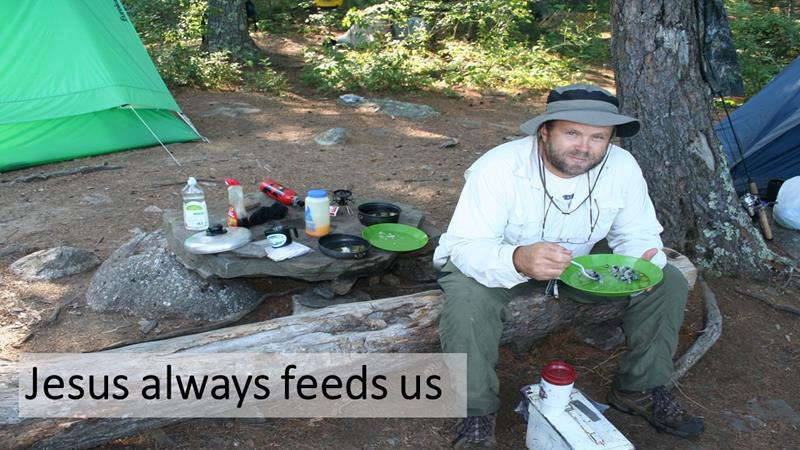 Finally, Jesus feeds us. In this case, he fed the disciples a hearty breakfast of fish and bread. But Jesus, who calls all who are weary to accept his yoke, will restore our tired souls and feed our minds and bodies with his presence and comfort.
Finally, Jesus feeds us. In this case, he fed the disciples a hearty breakfast of fish and bread. But Jesus, who calls all who are weary to accept his yoke, will restore our tired souls and feed our minds and bodies with his presence and comfort. Jeff Garrison
Jeff Garrison

 One of the common characteristics of the post-resurrection appearances of Jesus is that no one is looking for him, and no one “finds him.” Instead, Jesus just shows up. The disciples are hearing from the women about Jesus not being in the tomb, reports of him being in Emmaus, and from Simon Peter. But they don’t send out a search party to find Jesus. They’re scared. They lock themselves into a room while discussing what they consider as rumors. And when Jesus mysteriously shows up, they freak out. “It’s a ghost!”
One of the common characteristics of the post-resurrection appearances of Jesus is that no one is looking for him, and no one “finds him.” Instead, Jesus just shows up. The disciples are hearing from the women about Jesus not being in the tomb, reports of him being in Emmaus, and from Simon Peter. But they don’t send out a search party to find Jesus. They’re scared. They lock themselves into a room while discussing what they consider as rumors. And when Jesus mysteriously shows up, they freak out. “It’s a ghost!” One of the lessons we should learn from the resurrection stories is that Jesus controls both his and our destinies. It’s not about us going out looking for God, it’s about God looking for us. There are no barriers that we can put up to avoid God. The disciples discovered this when Jesus pops in. This is good news for those of us sheltering and avoiding contact with others in order to stay healthy during this pandemic. While we might not be able to go to church on Sunday mornings, God can invade the privacy of our homes. We can’t keep God out. As Jesus shows us, God is in control. That’s good, because we can screw things up, so we’re a lot better off depending upon the God who surprises us, than depending on our own inability to bring us back into a relationship with the Almighty. This is what the Presbyterian doctrine of election or predestination is all about.
One of the lessons we should learn from the resurrection stories is that Jesus controls both his and our destinies. It’s not about us going out looking for God, it’s about God looking for us. There are no barriers that we can put up to avoid God. The disciples discovered this when Jesus pops in. This is good news for those of us sheltering and avoiding contact with others in order to stay healthy during this pandemic. While we might not be able to go to church on Sunday mornings, God can invade the privacy of our homes. We can’t keep God out. As Jesus shows us, God is in control. That’s good, because we can screw things up, so we’re a lot better off depending upon the God who surprises us, than depending on our own inability to bring us back into a relationship with the Almighty. This is what the Presbyterian doctrine of election or predestination is all about. But before the disciples can understand this, they must realize who this is that has invaded their meeting. In their mind, Jesus is dead. You don’t come back to this life once grasp the idea that he is risen. First, he asks for a bite to eat. It’s been a while since his last supper. It’s important that they see food going in his mouth (see food, seafood, get it?). Jesus then points to his flesh and bones. Luke wants to assure us that Jesus’ appearance to the disciples after his death isn’t just wishful thinking on their part.
But before the disciples can understand this, they must realize who this is that has invaded their meeting. In their mind, Jesus is dead. You don’t come back to this life once grasp the idea that he is risen. First, he asks for a bite to eat. It’s been a while since his last supper. It’s important that they see food going in his mouth (see food, seafood, get it?). Jesus then points to his flesh and bones. Luke wants to assure us that Jesus’ appearance to the disciples after his death isn’t just wishful thinking on their part.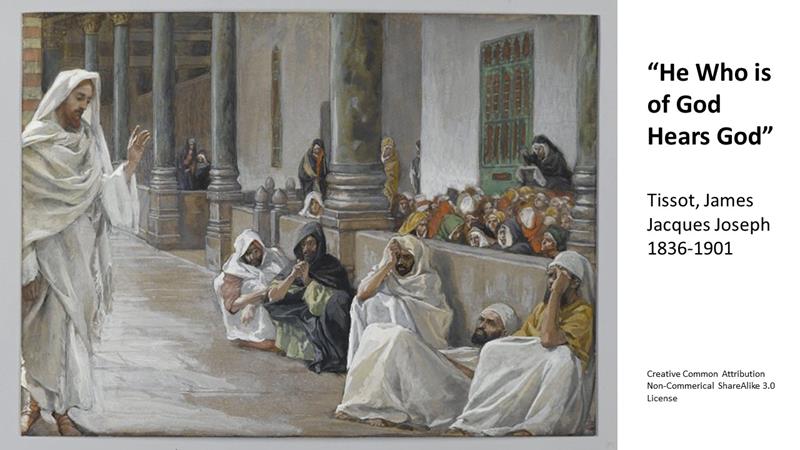 The second thing Jesus does, which is like what he did with those in Emmaus, is to help the disciples understand the scriptures. Jesus wants them to grasp the idea that his suffering, death, and resurrection has been God’s plan.
The second thing Jesus does, which is like what he did with those in Emmaus, is to help the disciples understand the scriptures. Jesus wants them to grasp the idea that his suffering, death, and resurrection has been God’s plan. Of course, because this is God’s doing, not the disciples’, they will need to be given the strength and ability to carry this mission out. Jesus, in his commission to the disciples in Luke’s gospel, is looking forward to the: coming of the Holy Spirit, to Pentecost, after which the disciples will take Jesus’ message to the end of the world.
Of course, because this is God’s doing, not the disciples’, they will need to be given the strength and ability to carry this mission out. Jesus, in his commission to the disciples in Luke’s gospel, is looking forward to the: coming of the Holy Spirit, to Pentecost, after which the disciples will take Jesus’ message to the end of the world. Jesus shows up and calls us because, sooner or later, we are no longer going to be hiding in our home. Life will open back up and when that happens, we need to be ready (just as the disciples were ready on Pentecost) to go into the world and make a difference. Think of this time we’re in as a Sabbath. Like the disciples, we rest today. In a short while, there will be plenty for us to do. As followers of Jesus, we’re to change the world, to make it a kinder more generous and gracious, home. May we catch that vision and live into it. Amen.
Jesus shows up and calls us because, sooner or later, we are no longer going to be hiding in our home. Life will open back up and when that happens, we need to be ready (just as the disciples were ready on Pentecost) to go into the world and make a difference. Think of this time we’re in as a Sabbath. Like the disciples, we rest today. In a short while, there will be plenty for us to do. As followers of Jesus, we’re to change the world, to make it a kinder more generous and gracious, home. May we catch that vision and live into it. Amen.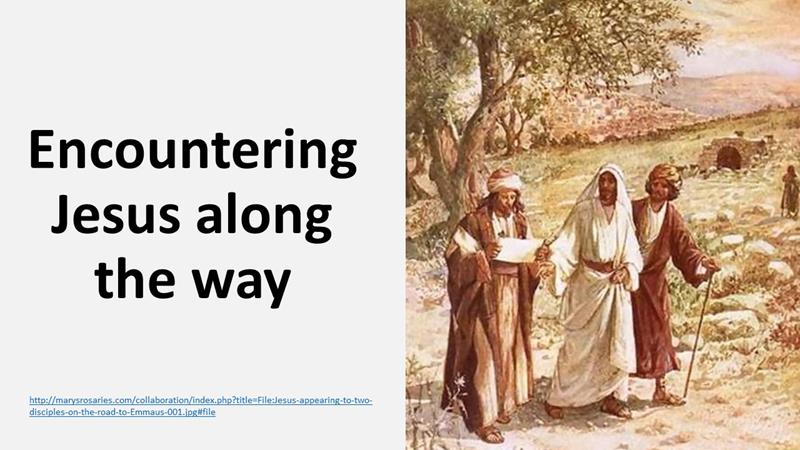
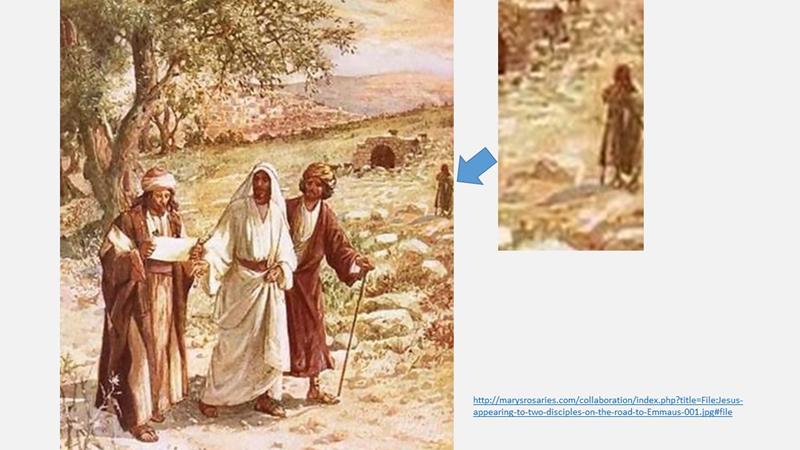 I have a lot of time to think out here, watching the sheep. I see a lot of people coming and going. Jerusalem, the Holy City, is just over the rise, a few miles away. These three were heading away from the city and engaged in a great debate. Even with my back turned, I could hear them a mile away. And as they were talking, the third guy, the one in a white robe, catches up with them. He joins their conversation. They seem rather surprised that he didn’t know what they were talking about. There’s this man, supposedly a king, who’d been crucified. But then he starts asking questions and I can tell they are intrigued. Here, a guy who didn’t seem to know the news, yet knows the scriptures.
I have a lot of time to think out here, watching the sheep. I see a lot of people coming and going. Jerusalem, the Holy City, is just over the rise, a few miles away. These three were heading away from the city and engaged in a great debate. Even with my back turned, I could hear them a mile away. And as they were talking, the third guy, the one in a white robe, catches up with them. He joins their conversation. They seem rather surprised that he didn’t know what they were talking about. There’s this man, supposedly a king, who’d been crucified. But then he starts asking questions and I can tell they are intrigued. Here, a guy who didn’t seem to know the news, yet knows the scriptures. 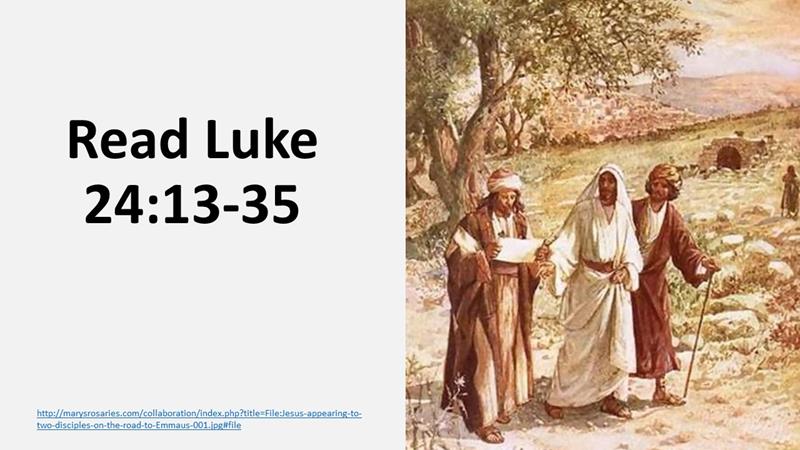

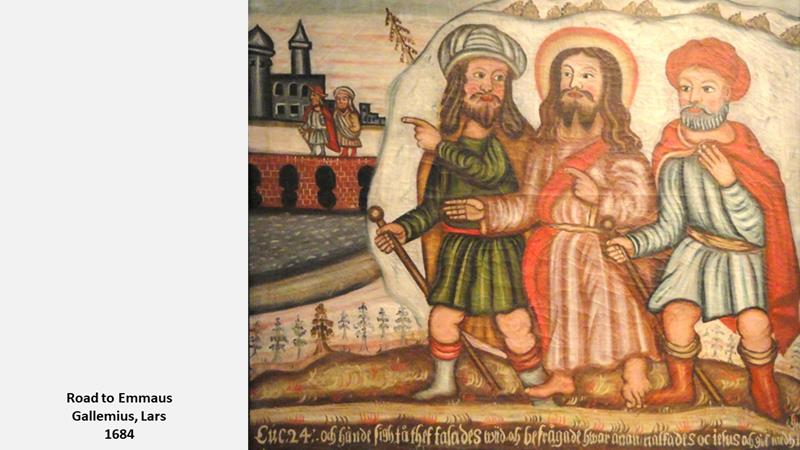 On this occasion, they are walking and discussing the events of the past few days when they are joined by a stranger. This makes sense to me, as I have walked a lot in my life. I recall numerous occasions along the Appalachian Trail where I was talking to someone and a third person comes up behind us and, overhearing what we were talking about, puts his two cents worth.
On this occasion, they are walking and discussing the events of the past few days when they are joined by a stranger. This makes sense to me, as I have walked a lot in my life. I recall numerous occasions along the Appalachian Trail where I was talking to someone and a third person comes up behind us and, overhearing what we were talking about, puts his two cents worth.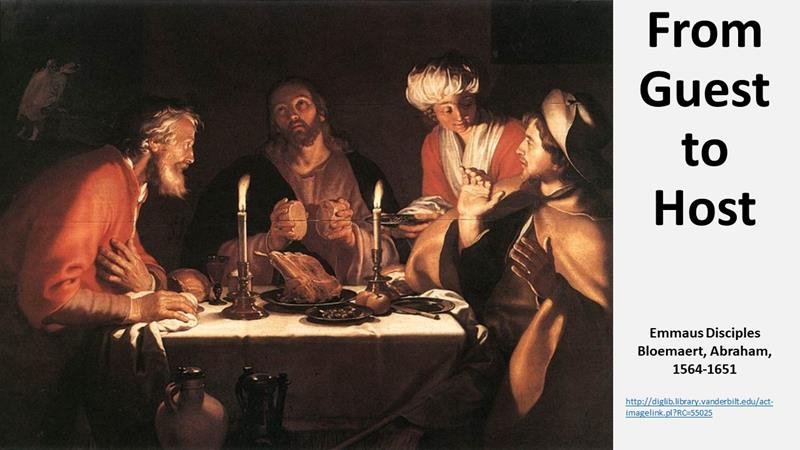 Something else happens. Jesus, at the table, goes from being the guest to the host.
Something else happens. Jesus, at the table, goes from being the guest to the host.
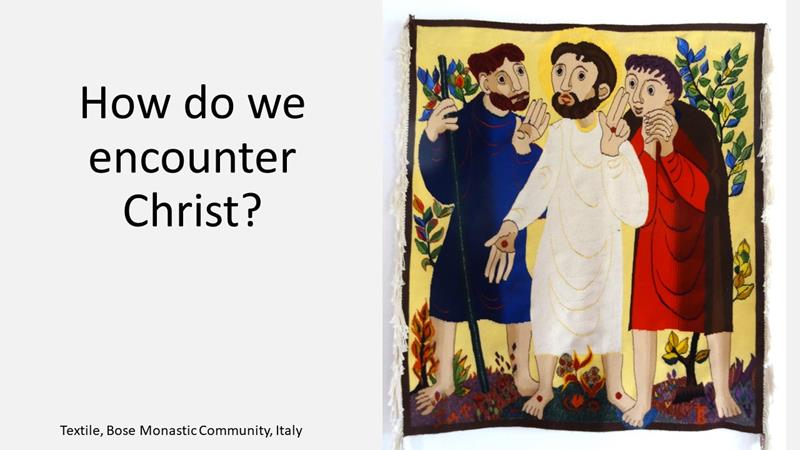 In some ways, our encounters with Christ are probably more like these two disciples walking to Emmaus. There are very few Damascus Road experiences, like that of Paul. It ranks up there with Moses’ burning unburned bush. Most of us experience Christ, like these two, when we realize something someone said caused our hearts to burn, or when someone opens Scripture and we learned the eternal truths of God’s Word. And when something like that happens, we must tell someone. It’s a Truth we can’t keep to ourselves. This is how our faith spreads. We encounter Christ through his word or through someone who speaks to us about Christ and then Christ becomes real to us.
In some ways, our encounters with Christ are probably more like these two disciples walking to Emmaus. There are very few Damascus Road experiences, like that of Paul. It ranks up there with Moses’ burning unburned bush. Most of us experience Christ, like these two, when we realize something someone said caused our hearts to burn, or when someone opens Scripture and we learned the eternal truths of God’s Word. And when something like that happens, we must tell someone. It’s a Truth we can’t keep to ourselves. This is how our faith spreads. We encounter Christ through his word or through someone who speaks to us about Christ and then Christ becomes real to us.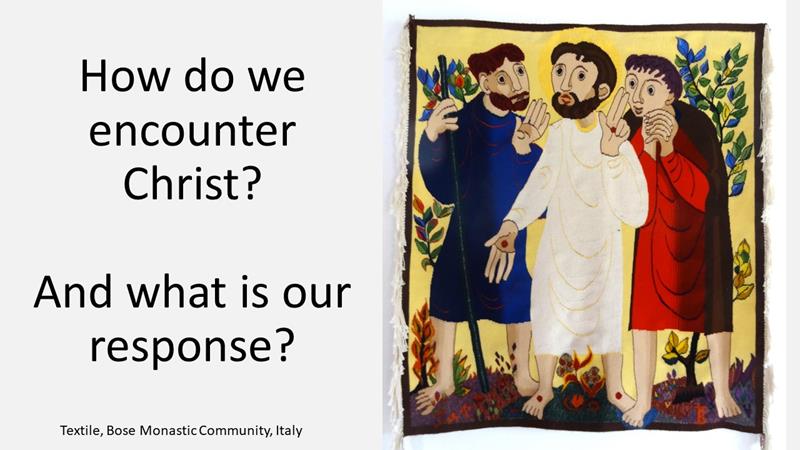
 Jeff Garrison
Jeff Garrison Like Thomas, I also have doubts. I was just not willing to speak up. Can this really be Jesus? After all, his body was so broken when they pulled him off the cross. Yet, he’s now in front of us. Jesus insists that Thomas, who doubted when they said Jesus had risen from the dead, stick his finger into his wound. I’m watching. Thomas is reluctant, but Jesus grabs his wrist and pulls his hand toward the wound. Can this really be the same Jesus, that just a little over a week ago, hung on a cross? And is he the same Jesus we followed throughout Galilee? Will people believe us when we tell what we’ve experienced? I no longer understand what is happening, but I know that nothing will ever be the same.
Like Thomas, I also have doubts. I was just not willing to speak up. Can this really be Jesus? After all, his body was so broken when they pulled him off the cross. Yet, he’s now in front of us. Jesus insists that Thomas, who doubted when they said Jesus had risen from the dead, stick his finger into his wound. I’m watching. Thomas is reluctant, but Jesus grabs his wrist and pulls his hand toward the wound. Can this really be the same Jesus, that just a little over a week ago, hung on a cross? And is he the same Jesus we followed throughout Galilee? Will people believe us when we tell what we’ve experienced? I no longer understand what is happening, but I know that nothing will ever be the same. 
 What a week it. From the Parade to the cross and now on the evening of the first day of a new week, the disciples gather in secret. The doors are locked. Everyone is exhausted. Fright and fatigue show on their faces. After three years, they only have each other. And now there’s a rumor going around, started by Mary Magdalene, that Jesus is alive. Some think it possible, but others believe it’s just idle tale?”
What a week it. From the Parade to the cross and now on the evening of the first day of a new week, the disciples gather in secret. The doors are locked. Everyone is exhausted. Fright and fatigue show on their faces. After three years, they only have each other. And now there’s a rumor going around, started by Mary Magdalene, that Jesus is alive. Some think it possible, but others believe it’s just idle tale?” And then suddenly, as the sun sinks in the West, Jesus appears. How did he get through the locked doors? But here he is, when he belongs, in the middle of the middle of the gathered disciples. Jesus was the one who unites the disciples. He’s always in the middle. He was even in the middle of those crucified on Friday. The middle is where Jesus belongs.
And then suddenly, as the sun sinks in the West, Jesus appears. How did he get through the locked doors? But here he is, when he belongs, in the middle of the middle of the gathered disciples. Jesus was the one who unites the disciples. He’s always in the middle. He was even in the middle of those crucified on Friday. The middle is where Jesus belongs. We could argue that this is the climax of John’s gospel. “My Lord and my God,” acknowledges that Jesus is more than the Messiah. We get a whiff of this in Matthew’s gospel where we’re told the women at the tomb worshipped Jesus.
We could argue that this is the climax of John’s gospel. “My Lord and my God,” acknowledges that Jesus is more than the Messiah. We get a whiff of this in Matthew’s gospel where we’re told the women at the tomb worshipped Jesus. What all this means to us, today, two millenniums after the resurrection? Jesus’ last words in this passage are interesting. It’s a blessing on us. “Blessed are those who have not seen and yet have come to believe,” Jesus says. Did you hear that? He’s talking about you and me; he’s blessing those of us who have not had an opportunity to stick our fingers into his wounds. Instead of seeing, we believe due to the presence of the Holy Spirit and the testimony of others who have felt Jesus’ presence in their lives. And because we have faith in Jesus Christ, we’re to listen to his teachings and to live lives that strive to glorify him. That’s the challenge we have, as individuals, to listen to Jesus and to live faithful.
What all this means to us, today, two millenniums after the resurrection? Jesus’ last words in this passage are interesting. It’s a blessing on us. “Blessed are those who have not seen and yet have come to believe,” Jesus says. Did you hear that? He’s talking about you and me; he’s blessing those of us who have not had an opportunity to stick our fingers into his wounds. Instead of seeing, we believe due to the presence of the Holy Spirit and the testimony of others who have felt Jesus’ presence in their lives. And because we have faith in Jesus Christ, we’re to listen to his teachings and to live lives that strive to glorify him. That’s the challenge we have, as individuals, to listen to Jesus and to live faithful. Furthermore, as a community of believers, we’re able to offer forgive sins. That’s quite a task. You know, there are a lot of good things that the church does in the community that other groups can also do, and in some cases these groups can even do it better than the church. But there is one thing that no other group can do. The government can’t do it, civic clubs can’t do it, political parties can’t do it—and that’s forgive sins. As God, Jesus has this power and he grants it to his church. For this reason, the church is an essential business. But the church isn’t a building; the church is wherever God’s people are at, which now, hopefully, is in the safety of our homes.
Furthermore, as a community of believers, we’re able to offer forgive sins. That’s quite a task. You know, there are a lot of good things that the church does in the community that other groups can also do, and in some cases these groups can even do it better than the church. But there is one thing that no other group can do. The government can’t do it, civic clubs can’t do it, political parties can’t do it—and that’s forgive sins. As God, Jesus has this power and he grants it to his church. For this reason, the church is an essential business. But the church isn’t a building; the church is wherever God’s people are at, which now, hopefully, is in the safety of our homes.

 I’ve stuck by Jesus ever since I encountered him that day on the road, long before we came to Jerusalem, when he freed me of those seven demons that had tormented me.
I’ve stuck by Jesus ever since I encountered him that day on the road, long before we came to Jerusalem, when he freed me of those seven demons that had tormented me.
 We have spent all of Lent looking at the last week of Jesus’ earthly ministry: From the entry into Jerusalem on what we call Palm Sunday, to the teachings at the temple and the various dinners and then the betrayal that led to Jesus’ death. On Friday, we appeared to be the end of the story. Jesus is dead. His lifeless body is sealed in a tomb as the sun is going down on the day for preparing for the Sabbath. Everyone returns to their homes or where they’ve been staying. I’m sure Caiaphas, the chief priest, and Pilate, the Roman governor, along others in leadership positions are glad to be done with this rabble-rouser. They may have even rested well on the Sabbath. Others, like the disciples and those who had followed Jesus were troubled. But they, too, felt it was over. They saw Jesus’ limp body be taken from the cross. But, as we know, the story doesn’t end.
We have spent all of Lent looking at the last week of Jesus’ earthly ministry: From the entry into Jerusalem on what we call Palm Sunday, to the teachings at the temple and the various dinners and then the betrayal that led to Jesus’ death. On Friday, we appeared to be the end of the story. Jesus is dead. His lifeless body is sealed in a tomb as the sun is going down on the day for preparing for the Sabbath. Everyone returns to their homes or where they’ve been staying. I’m sure Caiaphas, the chief priest, and Pilate, the Roman governor, along others in leadership positions are glad to be done with this rabble-rouser. They may have even rested well on the Sabbath. Others, like the disciples and those who had followed Jesus were troubled. But they, too, felt it was over. They saw Jesus’ limp body be taken from the cross. But, as we know, the story doesn’t end. John begins the 20th Chapter with several statements about time. It’s early. It’s the first day of the week. In the first chapter, John’s gospel has an echo of Genesis. Both start the same way, “In the beginning…” John takes that well-known phrase from the opening chapter of Scripture and applies it to Jesus. Jesus, the Word, was with God at the beginning of creation. God is doing something new. As in the seven days of Creation, when God created heaven and earth, we now have a new week. In the first week of Creation, God created humanity, the crown of creation, on day six. Now, on day six, God once again does his triumphant work, reconciling a sinful humanity with the divine through the sacrifice of God’s Son. That’s Good Friday. God rests on the seventh day, the Sabbath, our Saturday. And then, on the first day of the new week, in those early morning hours, God begins a new age.
John begins the 20th Chapter with several statements about time. It’s early. It’s the first day of the week. In the first chapter, John’s gospel has an echo of Genesis. Both start the same way, “In the beginning…” John takes that well-known phrase from the opening chapter of Scripture and applies it to Jesus. Jesus, the Word, was with God at the beginning of creation. God is doing something new. As in the seven days of Creation, when God created heaven and earth, we now have a new week. In the first week of Creation, God created humanity, the crown of creation, on day six. Now, on day six, God once again does his triumphant work, reconciling a sinful humanity with the divine through the sacrifice of God’s Son. That’s Good Friday. God rests on the seventh day, the Sabbath, our Saturday. And then, on the first day of the new week, in those early morning hours, God begins a new age. As Paul proclaims, Christ is the first fruit of those who died.
As Paul proclaims, Christ is the first fruit of those who died. The reports of this new era start with a restless Mary Magdalene going to the tomb while it’s still dark and seeing that it’s open. Of course, her experience, as is ours, is that once you are dead, there’s no coming back. So she runs to tell the disciples. Two of them, Peter and probably John, race each other back to the gravesite.
The reports of this new era start with a restless Mary Magdalene going to the tomb while it’s still dark and seeing that it’s open. Of course, her experience, as is ours, is that once you are dead, there’s no coming back. So she runs to tell the disciples. Two of them, Peter and probably John, race each other back to the gravesite. Mary hangs around. We get a sense of what she is thinking when she answers the angels who want to know why she’s crying. “They’ve taken away my Lord, and I don’t know where they laid him.” Mary Magdalene still believes that Jesus is dead. She assumes, because she can’t imagine otherwise, that some grave robber broke into the tomb and took the body away. In her mind, this is a terrible deed. It would be a terrible deed. You don’t mess with dead bodies. Even our military prosecutes soldiers who desecrate enemy dead. After all, once they are dead, they no longer pose a threat and are no longer enemies.
Mary hangs around. We get a sense of what she is thinking when she answers the angels who want to know why she’s crying. “They’ve taken away my Lord, and I don’t know where they laid him.” Mary Magdalene still believes that Jesus is dead. She assumes, because she can’t imagine otherwise, that some grave robber broke into the tomb and took the body away. In her mind, this is a terrible deed. It would be a terrible deed. You don’t mess with dead bodies. Even our military prosecutes soldiers who desecrate enemy dead. After all, once they are dead, they no longer pose a threat and are no longer enemies. This is an Easter unlike any we’ve experienced before. Instead of being together, wearing new clothes, bringing flowers to decorate the cross afterwards while kids hunt Easter eggs, we’re all separated as we strive to stop this virus that has unleashed death upon the earth. In some ways, we’re like the disciples, who were essentially hiding on that first Easter. Yes, Mary was out, as well as Peter and John for a short period, but once they saw Jesus’ body is gone, they head back to where the rest of the disciples are hiding. In fact, if you keep reading, you’ll see the disciples were not only hiding, they were behind locked doors.
This is an Easter unlike any we’ve experienced before. Instead of being together, wearing new clothes, bringing flowers to decorate the cross afterwards while kids hunt Easter eggs, we’re all separated as we strive to stop this virus that has unleashed death upon the earth. In some ways, we’re like the disciples, who were essentially hiding on that first Easter. Yes, Mary was out, as well as Peter and John for a short period, but once they saw Jesus’ body is gone, they head back to where the rest of the disciples are hiding. In fact, if you keep reading, you’ll see the disciples were not only hiding, they were behind locked doors. This is the meaning of this “great pause” we are living through right now.
This is the meaning of this “great pause” we are living through right now. Jeff Garrison
Jeff Garrison

 There are many paintings of Jesus praying in the garden in addition to this one from Cameroon. One of my favorites hung in the Session room in the congregation I served in Utah. I always felt it was an appropriate picture for a board room. Board rooms often have photos of the company founders, or the company president. Such paintings remind us of our heritage. Having Jesus in a church board room reminds us of who’s really in charge. It’s not the Session. Jesus Christ is the head of the church.
There are many paintings of Jesus praying in the garden in addition to this one from Cameroon. One of my favorites hung in the Session room in the congregation I served in Utah. I always felt it was an appropriate picture for a board room. Board rooms often have photos of the company founders, or the company president. Such paintings remind us of our heritage. Having Jesus in a church board room reminds us of who’s really in charge. It’s not the Session. Jesus Christ is the head of the church. Leaving the bulk of the disciples behind, Jesus takes the three disciples that consist of his inner-core and heads into a garden. For those steeped in Scripture, a garden recalls the perfect adobe of Adam and Eve, but also the temptation that occurred there.
Leaving the bulk of the disciples behind, Jesus takes the three disciples that consist of his inner-core and heads into a garden. For those steeped in Scripture, a garden recalls the perfect adobe of Adam and Eve, but also the temptation that occurred there. Jesus positions the three disciples close by. While he wants to be alone with the Father, he also wants to be close to friends. He asks them to stay awake. Yet, they immediately fall asleep. Was it the wine? Was it the exhausting schedule? Are they worried and depressed and the only way they can shut their brains off is through sleep? Jesus steps away and prays, then comes back to check on the disciples. He does this three times. Each time, they’re asleep. This compounds his troubles. He will have to go through the experience all alone. After his third trip back to the disciples, he arouses them and announces the arrival of the betrayer.
Jesus positions the three disciples close by. While he wants to be alone with the Father, he also wants to be close to friends. He asks them to stay awake. Yet, they immediately fall asleep. Was it the wine? Was it the exhausting schedule? Are they worried and depressed and the only way they can shut their brains off is through sleep? Jesus steps away and prays, then comes back to check on the disciples. He does this three times. Each time, they’re asleep. This compounds his troubles. He will have to go through the experience all alone. After his third trip back to the disciples, he arouses them and announces the arrival of the betrayer. What can we learn from this story? Let me suggest three things. First, to prepare ourselves for trouble, we need to take our concerns to God in prayer. Prayer is important even when we know the answer we’ll receive might be no.
What can we learn from this story? Let me suggest three things. First, to prepare ourselves for trouble, we need to take our concerns to God in prayer. Prayer is important even when we know the answer we’ll receive might be no.
 A second thing we can learn from this story is that there is a benefit of being supported in prayer. While God will hear our prayers, there is something to be said about having others praying with us. Like they were in the garden, separated by some distance, and like us now dealing the COVID-19 and being separated by six feet, we need to remember that we don’t have to lay hands on one another for our prayer to be effective. We must be willing to ask or to be asked to pray. And when someone asks us to pray for them, we should consider it an honor and fulfill their request. It helps to be supported in our prayer.
A second thing we can learn from this story is that there is a benefit of being supported in prayer. While God will hear our prayers, there is something to be said about having others praying with us. Like they were in the garden, separated by some distance, and like us now dealing the COVID-19 and being separated by six feet, we need to remember that we don’t have to lay hands on one another for our prayer to be effective. We must be willing to ask or to be asked to pray. And when someone asks us to pray for them, we should consider it an honor and fulfill their request. It helps to be supported in our prayer. And finally, we learn that even when we fail come through (and we’re all human and won’t always do what we should), we should remember that God doesn’t abandon us for petty failures. Look at the disciples. None of them could keep their eyes open on this most important night of their lives, but Jesus didn’t throw them under the bus. Instead, he faithfully kept his promise and even though Peter would go on to deny him, Jesus would use him to build his church. In fact, these three—Peter, James and John—would all become major players in the church following the resurrection. So even if we fail, don’t lose hope. Keep going and trust that God is with you.
And finally, we learn that even when we fail come through (and we’re all human and won’t always do what we should), we should remember that God doesn’t abandon us for petty failures. Look at the disciples. None of them could keep their eyes open on this most important night of their lives, but Jesus didn’t throw them under the bus. Instead, he faithfully kept his promise and even though Peter would go on to deny him, Jesus would use him to build his church. In fact, these three—Peter, James and John—would all become major players in the church following the resurrection. So even if we fail, don’t lose hope. Keep going and trust that God is with you. Jeff Garrison
Jeff Garrison Jesus and the disciples have booked my master’s banquet hall. I have prepared everything according to their wishes and am ready with the water and basin as I always am. Years ago, my parents gave me to the owner as collateral for the debt they owed. But things did not go well for them, and the debt was never repaid. And so, I work to pay it off. Roman law says that someday I could be a freed person, but I will never again have the full rights in society. I’m marked as a slave for life. I keep my head down and do what the master asks because legally he has the right to punish me.
Jesus and the disciples have booked my master’s banquet hall. I have prepared everything according to their wishes and am ready with the water and basin as I always am. Years ago, my parents gave me to the owner as collateral for the debt they owed. But things did not go well for them, and the debt was never repaid. And so, I work to pay it off. Roman law says that someday I could be a freed person, but I will never again have the full rights in society. I’m marked as a slave for life. I keep my head down and do what the master asks because legally he has the right to punish me. 
 Last week we explored the first meal recorded during Jesus’ final week of earthly ministry. This is the dinner in Simon’s home interrupted by the woman with perfume anointing Jesus. Today, we’re looking at the second meal of this week. Of course, there weren’t just two meals eaten during these seven days. These are just the two recalled in the gospels. Both meals are rich with symbols. Last week, we could almost smell the expensive perfume being poured. This week, we have the bread and the wine, the foot washing, and the betrayal, all mixed in. We know this dinner as the “Last Supper” and there’s enough material here for two dozen sermons. I promise I won’t exhaust the passage.
Last week we explored the first meal recorded during Jesus’ final week of earthly ministry. This is the dinner in Simon’s home interrupted by the woman with perfume anointing Jesus. Today, we’re looking at the second meal of this week. Of course, there weren’t just two meals eaten during these seven days. These are just the two recalled in the gospels. Both meals are rich with symbols. Last week, we could almost smell the expensive perfume being poured. This week, we have the bread and the wine, the foot washing, and the betrayal, all mixed in. We know this dinner as the “Last Supper” and there’s enough material here for two dozen sermons. I promise I won’t exhaust the passage.


 The second implication of the foot washing is ethical. “I’ve done this for you,” Jesus says, “so you need to do it to one another.” Jesus has shown us how to live our lives. We are called to live in mutual service, showing submission to one another, being willing to forgive when we are wronged, and having patience. All these traits, Jesus demonstrated. We too must learn from the Master. We must be willing to follow his example.
The second implication of the foot washing is ethical. “I’ve done this for you,” Jesus says, “so you need to do it to one another.” Jesus has shown us how to live our lives. We are called to live in mutual service, showing submission to one another, being willing to forgive when we are wronged, and having patience. All these traits, Jesus demonstrated. We too must learn from the Master. We must be willing to follow his example.
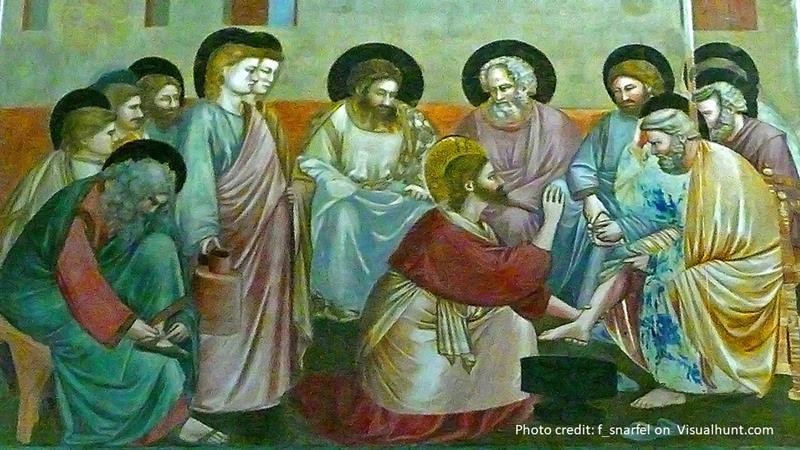 Jesus comes before us at the table, with a towel wrapped around his waist and a basin. He kneels. Do we let him wash our feet? And, if so, are we willing to humble ourselves and serve others in the manner that he has served us? These are questions we need to ask ourselves. Amen.
Jesus comes before us at the table, with a towel wrapped around his waist and a basin. He kneels. Do we let him wash our feet? And, if so, are we willing to humble ourselves and serve others in the manner that he has served us? These are questions we need to ask ourselves. Amen. Jeff Garrison
Jeff Garrison  None of us are happy with the way things are going in Jerusalem. It’s not just the political oppression. We’re troubled by the dire situation of the hungry, the poor, the sick, and the disturbed. The Roman’s don’t’ care about them? At least we try. Every penny we scrape up we try to pass on to those who need it. Before Jesus arrived for dinner, some of us were also wondering if we should save some money in case we needed to hide out in the not-too-distant future.
None of us are happy with the way things are going in Jerusalem. It’s not just the political oppression. We’re troubled by the dire situation of the hungry, the poor, the sick, and the disturbed. The Roman’s don’t’ care about them? At least we try. Every penny we scrape up we try to pass on to those who need it. Before Jesus arrived for dinner, some of us were also wondering if we should save some money in case we needed to hide out in the not-too-distant future.
 There are two big meals highlighted in the final week of Jesus’ earthly ministry.
There are two big meals highlighted in the final week of Jesus’ earthly ministry.

 Now consider the risks this woman takes. She shows up uninvited. She shocks the guests with her generosity. Ever give a gift and wonder and worry if it would be accepted? Her gift does upset those around the table. Why isn’t this money being given to the poor? They ask. Jesus’ protects her dignity, saying she’ll be remembered because of what she’s done. And Jesus doesn’t stop there. He goes on to say we’ll always have the poor, but he won’t be around long, at least not in person.
Now consider the risks this woman takes. She shows up uninvited. She shocks the guests with her generosity. Ever give a gift and wonder and worry if it would be accepted? Her gift does upset those around the table. Why isn’t this money being given to the poor? They ask. Jesus’ protects her dignity, saying she’ll be remembered because of what she’s done. And Jesus doesn’t stop there. He goes on to say we’ll always have the poor, but he won’t be around long, at least not in person. In Matthew’s gospel, we’re told that helping the poor and needy, the sick and the prisoner, is the same as helping Christ,
In Matthew’s gospel, we’re told that helping the poor and needy, the sick and the prisoner, is the same as helping Christ,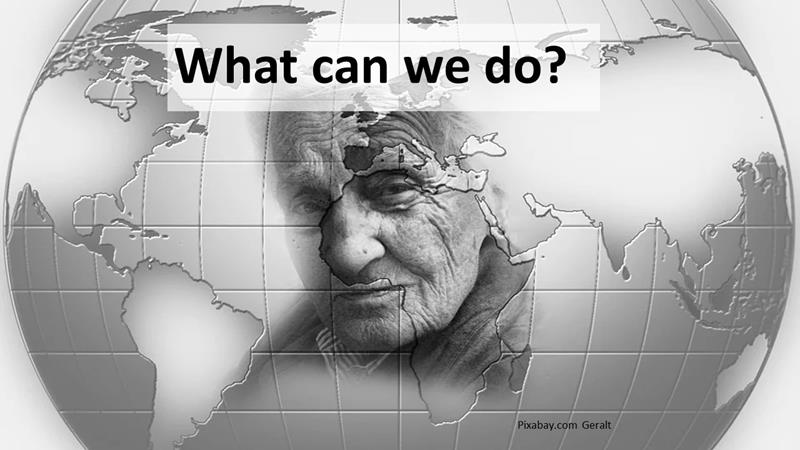 What can we do? We certainly can’t heal the world, just as the woman couldn’t keep Jesus off the cross. But what kind of risk might we take for Jesus? Things are changing so rapidly around us. It’s scary. But we need to remember, this is not the first time Christ’s church has witnessed pestilence. In the 14th Century, a large percentage of the population died from the plague, but at the same time Great Cathedrals were being built.
What can we do? We certainly can’t heal the world, just as the woman couldn’t keep Jesus off the cross. But what kind of risk might we take for Jesus? Things are changing so rapidly around us. It’s scary. But we need to remember, this is not the first time Christ’s church has witnessed pestilence. In the 14th Century, a large percentage of the population died from the plague, but at the same time Great Cathedrals were being built. This woman might be seen as a fool for Christ. She faced ridicule, but Jesus protected her dignity and honored her. Don’t be afraid to be a fool for Christ. For our Master will take care of us. Amen.
This woman might be seen as a fool for Christ. She faced ridicule, but Jesus protected her dignity and honored her. Don’t be afraid to be a fool for Christ. For our Master will take care of us. Amen.
 If you read the entirety of Matthew 22 (and with the extra time we may be having on hand as everything is being cancelled because of the Coronavirus, it’s not a bad idea), you’d witness a masterful campaign to trap Jesus. But Jesus isn’t so easy to catch. He’s kind of like Stonewall Jackson in the Valley Campaign in the spring of 1862. Jackson faced much larger armies who wanted to trap and do him in.
If you read the entirety of Matthew 22 (and with the extra time we may be having on hand as everything is being cancelled because of the Coronavirus, it’s not a bad idea), you’d witness a masterful campaign to trap Jesus. But Jesus isn’t so easy to catch. He’s kind of like Stonewall Jackson in the Valley Campaign in the spring of 1862. Jackson faced much larger armies who wanted to trap and do him in. What’s happened is that unlikely groups join together to challenge Jesus. The old cliché, “politics make strange bedfellows,” rings true. Groups who wouldn’t normally give each other the time of day have come together to take on Jesus. They sense that Jesus is challenging the existing order. You have a few Herodians, who are Jews who believe they’re be better off cooperating with the Romans. They take their name from Herod, who had Jewish blood but worked for the Empire. And you have the Pharisees; a group of seriously committed religious leaders who believe in the resurrection. Theologically, they’re most like Jesus, but Jesus constantly challenges them and exposes their hypocrisy.
What’s happened is that unlikely groups join together to challenge Jesus. The old cliché, “politics make strange bedfellows,” rings true. Groups who wouldn’t normally give each other the time of day have come together to take on Jesus. They sense that Jesus is challenging the existing order. You have a few Herodians, who are Jews who believe they’re be better off cooperating with the Romans. They take their name from Herod, who had Jewish blood but worked for the Empire. And you have the Pharisees; a group of seriously committed religious leaders who believe in the resurrection. Theologically, they’re most like Jesus, but Jesus constantly challenges them and exposes their hypocrisy. What we read this morning could be described as one movement in a tag-team wrestling match. The Herodians and the Pharisees team up on Jesus.
What we read this morning could be described as one movement in a tag-team wrestling match. The Herodians and the Pharisees team up on Jesus. So what is Jesus telling us in this passage? Do you remember those big posters that use to sit out in front of the Post Office and government buildings with Uncle Sam pointing his finger and saying: “I want you!” I believe we could easily surmise this text into a big poster of God saying: “I want you!”
So what is Jesus telling us in this passage? Do you remember those big posters that use to sit out in front of the Post Office and government buildings with Uncle Sam pointing his finger and saying: “I want you!” I believe we could easily surmise this text into a big poster of God saying: “I want you!” “Tell me,” they ask, “Is it lawful to pay taxes to the emperor, or not?” Jesus has to be careful. Last week you heard Deanie preach about the revolutionary act of Jesus cleaning the temple. Now they want Jesus to make a revolutionary statement against the civil authorities. If Jesus says they should not pay taxes, the Herodians could have him arrested for treason. But then, if he says to pay the taxes, the Pharisees can attack him for not being a patriotic Jew.
“Tell me,” they ask, “Is it lawful to pay taxes to the emperor, or not?” Jesus has to be careful. Last week you heard Deanie preach about the revolutionary act of Jesus cleaning the temple. Now they want Jesus to make a revolutionary statement against the civil authorities. If Jesus says they should not pay taxes, the Herodians could have him arrested for treason. But then, if he says to pay the taxes, the Pharisees can attack him for not being a patriotic Jew. Jesus asks them for a coin. Unlike us, he didn’t have to worry about where that’s coin has been or picking up some a virus from its surface. However, Jesus still has to be careful. The disciples, we know, had a common purse and he could have gone there to fetch a coin, but then the Pharisees might have charged him with toting around an engraved image of the emperor.
Jesus asks them for a coin. Unlike us, he didn’t have to worry about where that’s coin has been or picking up some a virus from its surface. However, Jesus still has to be careful. The disciples, we know, had a common purse and he could have gone there to fetch a coin, but then the Pharisees might have charged him with toting around an engraved image of the emperor. Give to God what is God’s. This phrase is often overlooked. We tend to get hung up on what is Caesar’s and what is ours. We get hung up on the petty details and we miss the important question. What does it mean for us to give ourselves to God?
Give to God what is God’s. This phrase is often overlooked. We tend to get hung up on what is Caesar’s and what is ours. We get hung up on the petty details and we miss the important question. What does it mean for us to give ourselves to God? Earlier I mentioned Stonewall Jackson, whose biography I’m currently reading. But let me tell you two other Civil War stories, they’re both short, and demonstrate this point. At the Battle of Shiloh in the spring of 1862, Albert Sidney Johnson led the Confederate troops as they overwhelmed the Union forces near Pittsburg Landing along the Tennessee River. It was a bloody day and the Union lines were broken in places. During a lull in the first day of battle, Johnson, seeing a number of wounded Union soldiers in need, ordered his surgeon to set up an aid station and to tend to their needs. According to Shelby Foote in his novel about the battle, his surgeon, Dr. Yandell protested. Johnson cut him off saying “These men were our enemies a moment ago. They are our prisoners now. Take care of them.” A few minutes later, a stray bullet struck Johnson’s leg and without medical aid, he quickly bled to death.
Earlier I mentioned Stonewall Jackson, whose biography I’m currently reading. But let me tell you two other Civil War stories, they’re both short, and demonstrate this point. At the Battle of Shiloh in the spring of 1862, Albert Sidney Johnson led the Confederate troops as they overwhelmed the Union forces near Pittsburg Landing along the Tennessee River. It was a bloody day and the Union lines were broken in places. During a lull in the first day of battle, Johnson, seeing a number of wounded Union soldiers in need, ordered his surgeon to set up an aid station and to tend to their needs. According to Shelby Foote in his novel about the battle, his surgeon, Dr. Yandell protested. Johnson cut him off saying “These men were our enemies a moment ago. They are our prisoners now. Take care of them.” A few minutes later, a stray bullet struck Johnson’s leg and without medical aid, he quickly bled to death. A second story comes from the city of Wilmington during the Civil War. In 1862, a blockade runner that had come in from the Caribbean brought Yellow Fever to the town. Those who could fled to the country, but several of the pastors and the leading citizens of the town stayed behind, feeling it was their Christian obligation to help out the victims. Over 400 people died of Yellow Fever that fall, including many of those who intentionally stayed to care for the dying.
A second story comes from the city of Wilmington during the Civil War. In 1862, a blockade runner that had come in from the Caribbean brought Yellow Fever to the town. Those who could fled to the country, but several of the pastors and the leading citizens of the town stayed behind, feeling it was their Christian obligation to help out the victims. Over 400 people died of Yellow Fever that fall, including many of those who intentionally stayed to care for the dying. Give to God what is God’s, is the message here. So yes, we should pay our income tax. And when you write that check this April, we might remember that giving Caesar his due can be a lot easier than giving to God what is his. For our whole life belongs to God. But then, God’s given us life and in Jesus Christ has redeemed us to be his people. That’s a debt we can’t repay, nor is such repayment expected. As the old hymn goes, “Jesus paid it all.”
Give to God what is God’s, is the message here. So yes, we should pay our income tax. And when you write that check this April, we might remember that giving Caesar his due can be a lot easier than giving to God what is his. For our whole life belongs to God. But then, God’s given us life and in Jesus Christ has redeemed us to be his people. That’s a debt we can’t repay, nor is such repayment expected. As the old hymn goes, “Jesus paid it all.”